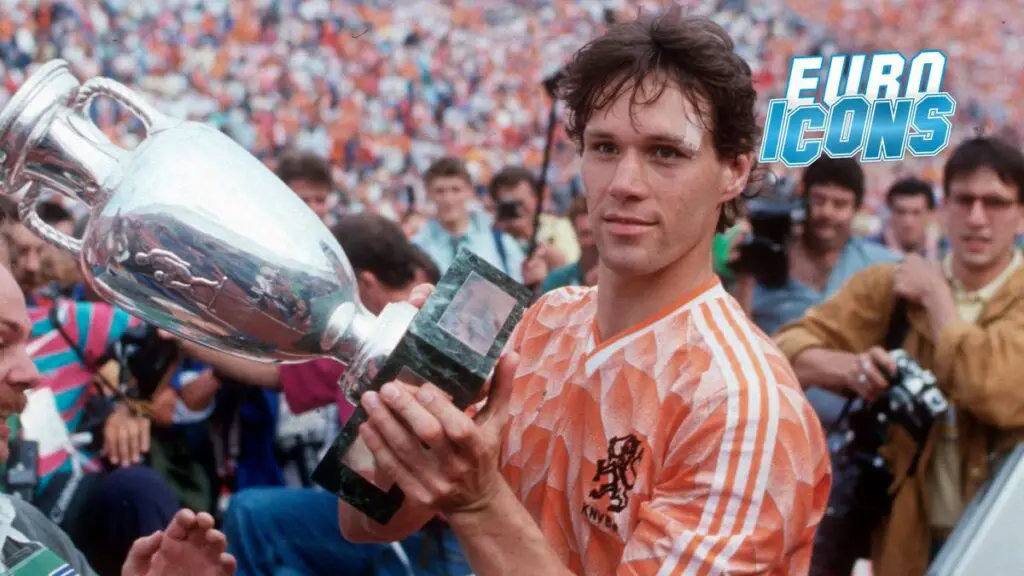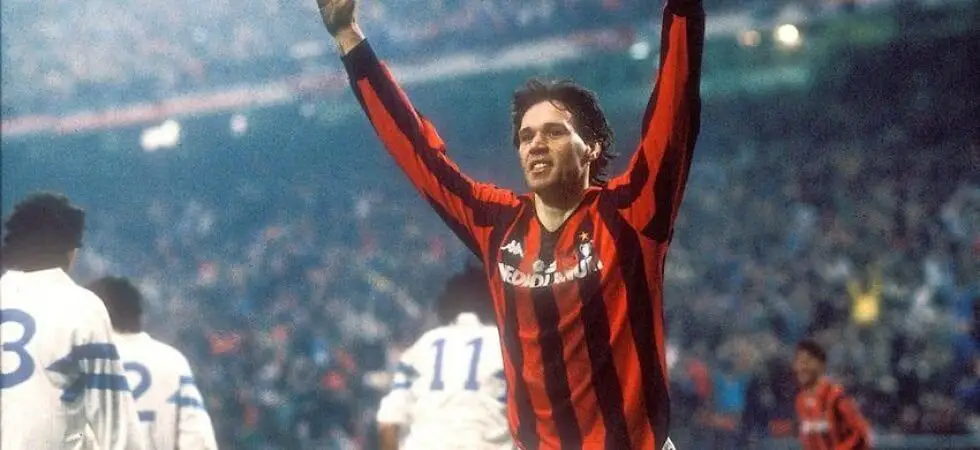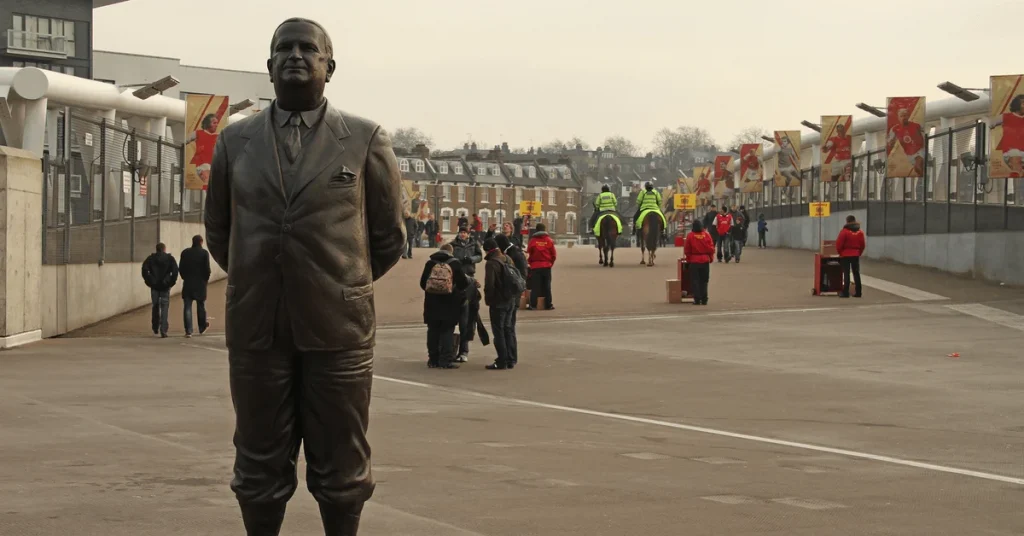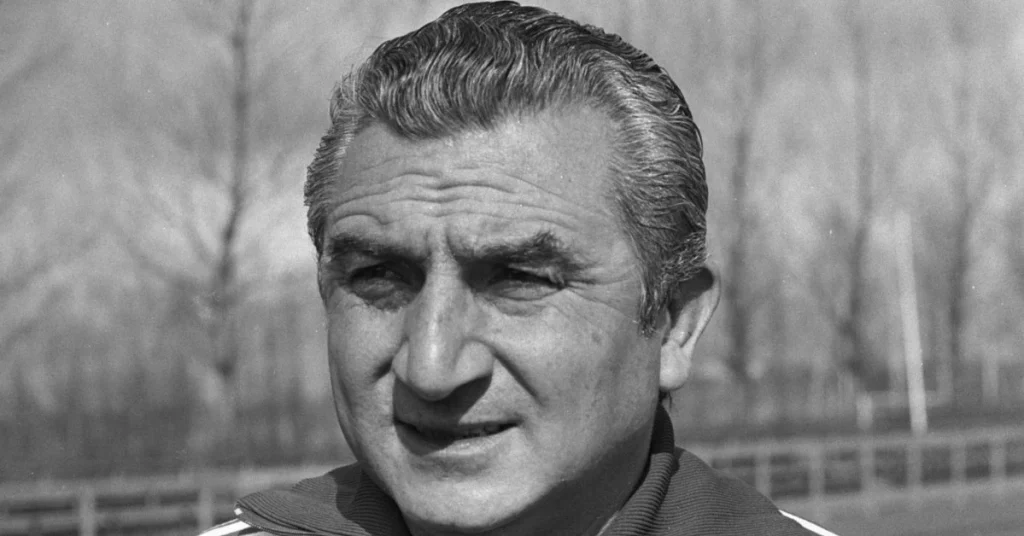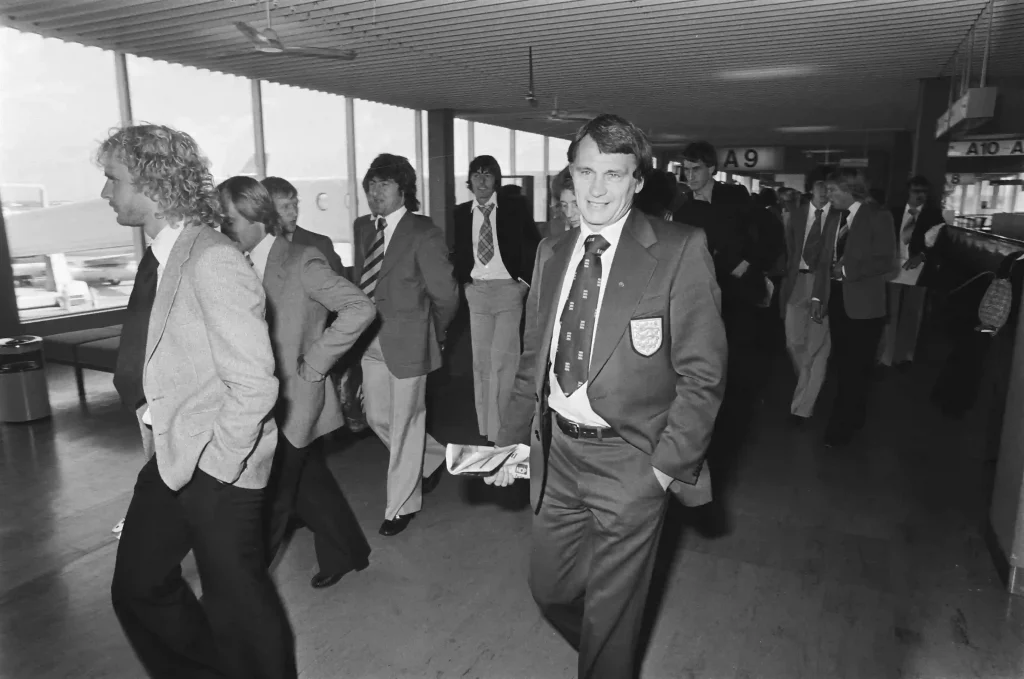Marco was one the best strikers of all time for the Netherlands and had a glittering club career to go with it with Ajax and AC Milan, winning six league titles, five cups, six European trophies and the European Championship for the Netherlands. He was a prolific goalscorer with an elegant style of play and was known as the ‘Swan of Utrecht’, but sadly was forced to give up playing through injury at the age of just 28.
The early years and Ajax
Marcel ‘Marco’ Van Basten was born in October 1964 in Utrecht, Holland. He joined a local football team, EDO at the age of 6, moving to UVV Utrecht a year later. After nine years honing his skills as a striker, he joined Elinkwijk for twelve months. He did well enough to be taken on by Dutch giants Ajax at the age of 16 in the summer of 1981 at his father Joop’s suggestion following the failure of older brother Stanley to get a professional contract.
Marco made his first team debut as a half time substitute against NEC Nijmegen in April 1982, replacing Johann Cruyff no less, and he scored with a header in the 68th minute as Ajax won 5-0. That was his only appearance that season, but in August 1982, after just two sub appearances for Ajax, he was chosen for the Netherland U21s and played a full game against Iceland. He scored ten times in 25 appearances for Ajax as they completed a league and cup double and at the end of the season, he was chosen in the Netherlands U20 squad for the World Youth championships. He scored twice in four games as they were beaten by Argentina in the quarter finals.
Leading scorer
He really came to the fore in 1983/84 as he scored 29 goals in 32 games for Ajax, finishing as top scorer in the Eredivisie despite missing eight games through injury. That included scoring 4 in a game against Willem II and 5 against FC Dordrecht. Amazingly though, Ajax didn’t win a trophy that season. Marco made his full international debut as a half time substitute against Belgium in Brussels and scored in a 1-1 draw.
Another 29 goals followed for Ajax in the 1984/85 campaign as Ajax regained the Eredivisie. He scored five goals in a remarkable 14-0 victory over Luxembourg outfit Red Boys Differdange in the UEFA Cup, Ajax’s record competitive win, and four in the league v FC Volendam.
Worldwide acclaim
The 1985/86 season brought worldwide success for Marco as he scored 39 club goals for Ajax in 34 games, a total that made him the leading league scorer not only in Holland, but in Europe and the world. His league total included a personal best 6 in a 9-0 victory over Sparta Rotterdam and 5 versus Heracles. Ajax finished second in the league but won the Dutch Cup, defeating Roosendaal 3-0 in the final. Things didn’t go well on the international front though as Holland failed to qualify for the 1986 World Cup, losing to Belgium in the play-offs.
He did even better in 1986/87 with a career high of 44 club goals which meant that he finished as the leading scorer in the Eredivisie for the fourth season in succession. Ajax only finished second again, but retained the Dutch Cup. Marco was suffering from ankle problems and had to have ligament surgery in December 1986, and manager Johann Cruyff pleaded with him to play in the European Cup Winners Cup games even though he was missing training and league games.
Injuries mount
In later years Marco regretted his decision to play on as he was in so much pain, but he did so and scored 6 goals in 9 games in Europe as Ajax won the trophy including the only goal of the final against VFB Leipzig in Athens. He had a purple patch towards the end of the season scoring 4 against PEC Zwolle in the league and two in the Dutch Cup final as Ajax defeated FC Den Haag 4-2.
Move to Milan
Big clubs were admiring his talent and, in the summer of 1987, he was transferred to AC Milan for £1.13 million having scored 152 goals in 172 games for Ajax. Ironically, he had just been voted the best young player in Europe by an Italian magazine (the Bravo award). He scored on his debut v Pisa but after just five games his ankle problems flared up again and after a visit to a specialist in Barcelona it was decided he needed a bigger operation that caused him to miss 22 club games plus three internationals. AC Milan won the league title but Marco’s career highlight came on the international front in the 1988 European Championships in Germany.
Euro success
It was touch and go whether he would make the squad because of his injury problems but he was chosen, and came on as a substitute in their first game, a 1-0 defeat to the Soviet Union. He started the next game though against England and scored his first international hat trick as Holland won 3-1. Afterwards he said, “It was a really spectacular game, because we were both good teams. In the end we were lucky because they hit the post twice. I was very nervous because it was my first full match after a long period out injured, but I scored three and you get the wind in your sails. Everything felt easier after that.”
He scored a last minute winner in the semi-final v West Germany, to heighten his popularity in Holland even more, and then it was all eyes on the final for a second meeting with the Soviet Union. Ruud Gullitt gave Holland the lead from a Van Basten cross but then Marco’s place in history was confirmed when he scored their second goal in the 54th minute. Arnold Muhren sent over a cross from the left that cleared everybody bar Marco, who was ten yards from goal but only five yards from the bye line, so as defenders expected a cross back into the middle, he struck an outrageous dipping volley over ‘keeper Rinat Dasayev that is still talked about as one of the best goals ever scored, certainly in such a huge game. The Dutch won 2-0 to win to date their only major title. Marco was voted player of the tournament as well as being top scorer.
Ballon D’Or winner
Marco was at the height of his game now and won the Ballon D’Or in 1988 and went on to score 33 goals for AC Milan in 1988/89, the most in a season for them since Gunner Nordahl managed 35 in 1950/51. The Rossoneri only finished third in the league but they did win the European Cup, and Marco was a star during the whole run. He scored ten goals in in nine games, including 4 in a first-round tie against Levski Sofia and two in the final against Steaua Bucharest, a 4-0 victory. They also won the Italian Super Cup and Marco retained the Ballon D’Or in 1989.
He was hampered by injuries in 1989/90 but still managed 25 goals for his club, being top scorer in the league as they were runners up but they retained the European Cup. Marco scored 3 in the cup run and he made the winner in the final against Benfica for Frank Rijkaard. He made four appearances in the 1990 World Cup but didn’t score as Holland were knocked out by Germany in the last 16.
He only managed 11 goals for AC Milan in 1990/91 but was still leading scorer as they won the Intercontinental Cup. He did manage 5 in a game for Holland against Malta. In 1991/92 Milan were banned from Europe for one year after refusing to return to the field for a game in Marseille after a floodlight failure the previous season. Marco hit form with a bang scoring 29 goals as Milan won the Scudetto (the league) but it ended in disappointment on the international front. Holland reached the semi finals of Euro 1992 but lost 7-6 on penalties against Denmark with Marco having his crucial effort saved. He won the Ballon D’Or for the third time in 1992 and was voted World Player of the year.
Early retirement beckons
The 1992/93 season was again blighted by ankle injuries and what proved to be his final appearance for Holland was against Poland in October 1992, having scored 24 goals in 58 games. He only started 14 league games as Milan won the league but he helped them to the final of the Champions League when they were beaten 1-0 by Marseilles. Ironically that was in the same Munich stadium that he scored his greatest ever goal five years earlier for Holland and it turned out to be his last ever game as a player. He had to have ankle surgery for the third time and missed the entire 1994/95 season, before admitting defeat and announcing his retirement in August 1995.
Management
Within a year he could hardly walk and he had to have his ankle fused in 1996. He slowly began to lead a normal life again and in 2003 he went back into football as assistant manager to the Ajax second team. A year later he was appointed manager of the Netherlands, controversial at the time as he was very inexperienced as a manager. They were unbeaten in their qualifying group for the 2006 World Cup and reached the last 16, losing 1-0 to Portugal. They also reached Euro 2008 only to lose on penalties against Russia. Marco resigned after the tournament having won 35 and drawn 11 of his 52 games in charge.
He went back to Ajax as manager but resigned after one season as they failed to qualify for the Champions League. He then had a spell as TV pundit before managing Heerenveen for two years, moving to similar role at AZ Alkmaar in 2014. Stress related heart problems led to him stepping down though after just five games, later returning as coach.
He had a spell as assistant coach to the Netherlands before becoming a technical director of FIFA as well as a role in the media, releasing his autobiography in 2020.
Club Career
| Club | Years | Appearances | Goals |
|---|---|---|---|
| Ajax | 1981-1987 | 133 | 128 |
| AC Milan | 1987-1995 | 147 | 125 |
| Total | 1981-1995 | 280 | 253 |
International Career (Netherlands)
| National Team | Years | Appearances | Goals |
|---|---|---|---|
| Netherlands | 1983-1994 | 58 | 24 |
Total Career Stats (Club and International)
- Appearances: 338
- Goals: 277
Please note that these statistics are approximate and may vary slightly depending on different sources. Marco van Basten was known for his incredible skill, clinical finishing, and his impact on the field during his playing career.
